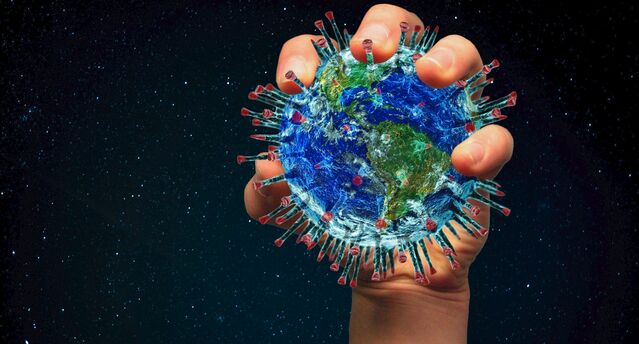Unconscious
These Unconscious Reactions Are Fueling Vaccine Resistance
Our automatic responses to danger are steering us wrong on COVID-19.
Posted September 1, 2021 Reviewed by Jessica Schrader
Key points
- Automatic responses that evolved to protect people can steer them in the wrong direction when faced with unfamiliar threats such as the pandemic.
- People who refuse masks and vaccines may react to COVID-19 with fight or freeze responses, which help repress the sensation of fear.
- Understanding and working with the emotional drivers behind apparently self-defeating behaviors may help boost vaccination rates.

Vaccine resistance is a worldwide phenomenon. Attributing it to the usual suspects (American politics, conspiracy theories, misinformation, or our unique cultural and historical factors) ignores the hidden forces impelling people worldwide to refuse vaccination. The true explanation may instead lie in human nature itself, and our visceral responses to danger. Government efforts, everywhere, to overcome vaccine resistance are floundering, even as the delta variant exacerbates the pandemic, partly because these efforts overlook that basic, vital cause.
If you were an opossum, when threatened, you might freeze, your body shutting down to such a degree that you appeared dead. A gazelle might run like the wind to escape, while a rhino might attack. These are unconscious, automatic responses to danger. Humans employ all three.
These instantaneous visceral responses happen in milliseconds, long before conscious awareness is possible. Once they are already underway, our meaning-making minds catch onto what we are doing and seek justifications for our actions.
For example, fear responses make us instantly retreat from a growling, snapping dog. After that response is triggered, we consciously tell ourselves, “It might have bitten me!” In the pandemic, this might cause us to socially distance and reach for gloves and hand sanitizer.
We may freeze the instant we see a car hurtling toward us as we cross a street, our bodies and emotional responses arrested until the vehicle passes by. Afterwards, we tell ourselves that it was the best or only way to prevent danger and death (this is also a common response in victims of domestic abuse and rape). If our visceral reaction to the pandemic is “freeze,” we might tell ourselves that the vaccines are harmful or not well researched, so doing nothing is safest.
The visceral “fight” response initiates an attack—verbal, physical, or both. Once we become aware of our aggressive reaction, we tell ourselves the situation fully deserves our ire. In the case of the pandemic, fighters are ready to take on all comers, defying the disease itself, as well as advice to mask or get vaccinated.
Freeze and Fight Responses Repress Fear
One thing the unvaccinated have in common is reporting less fear of COVID—despite being at vastly greater risk than the vaccinated. This is because “freeze" and “fight” responses repress awareness of fear, enabling us to hold our ground or confront the threat.
To understand this dynamic, it may be helpful to turn to a common experience. Learning to drive a car is terrifying. You might kill yourself or someone else, or wreck something you can't afford to fix. Yet teenagers who speed recklessly don't feel afraid. Instead, they feel euphoric and powerful as they flout speed limits designed to protect life and limb (as those who flout public health mandates might).
Rather than avoiding danger through caution, speeders overcome the sensation of fear through the pleasure of driving aggressively. Awareness of vulnerability is replaced with intoxicating empowerment, and it feels good—far better than the terror it has supplanted.
Some people, therefore, repeatedly seek out confrontations with the things they fear most. Former President Trump’s behavior could be an example of this. He is a self-proclaimed germaphobe. But why would someone mortally terrified of germs deny the danger of COVID-19, refuse masks, and host super-spreader events at the White House—despite having full knowledge that COVID-19 could kill him? The answer may lie in his predispositions. He prides himself on being a lifelong fighter, once writing, “Even in elementary school, I was a very assertive, aggressive kid.” He may have defaulted to “fight” mode.
Surviving each confrontation with deadly danger fuels a sense of invulnerability, and, paradoxically, safety. But as every insurer knows, repetition increases risk—and indeed Trump was hospitalized with COVID-19 after repeated potential exposures.
This behavior, while apparently irrational, can stem from natural responses to danger. Yet instead of understanding a common reaction, defenders of public health condemn and attack those who refuse masks and vaccines. These attacks are counter-productive, since vilifying the maskless and unvaccinated increases their threat perception, fueling paralysis in those who freeze and defiant bravado in the fighters.
Disassociating Vaccines From Fear
We are failing to meaningfully and productively address one another’s fears. To achieve herd immunity and cultural reconciliation, we must use tactics other than contempt, anger, and frightening statistics.
Some people who refuse vaccination will never change their minds to save lives. This is because protecting themselves and others means acknowledging danger, which those who rely upon freeze or fight reactions cannot do.
Rather than continuing to bang our collective heads against this wall, we should disassociate the vaccines from fear, and instead associate them with pleasure, coolness, empowerment, courage, and strength. The military used this approach to prevent suicide with a campaign emphasizing that “it takes the courage and strength of a warrior to ask for help.” The French use images of kissing couples to advertise the intimate, “desirable” benefits of vaccination.
We should follow both paths to overcome vaccine resistance. Rather than simply “protecting” us, vaccines should also be reframed as incredibly powerful weapons to attack the virus, and vaccination passports as credentials proving that we are well armed for the fight.
As many people’s “irrational” reactions to COVID-19 have demonstrated, emotions, not reason and science, govern much of human behavior. This is equally true for those of us whose instinctive “flight” reactions to COVID position us, in this case, more in line with science-based public health guidance. Rather than congratulating ourselves on our superiority, we should recognize our good luck and sympathize with those whose visceral reactions are currently failing to protect them. In order to change behaviors that endanger us all, we need to understand, rather than dismiss or condemn, the powerful emotional forces behind apparently self-defeating actions.
President Trump seemed to outplay his political rivals and the scientific community for months by harnessing these powerful responses. To overcome the critical challenges still facing us, we must find ways to bend the arc of these normal threat responses toward fostering, rather than undermining, individual and social health and well-being. Failure to understand, respect, and make use of the emotional drivers of human behavior has already cost us dearly. Unless we learn from those mistakes, there may be worse to come.
References
To understand fear and aggression in humans, read: Behave: The Biology of Humans at Our Best and Worst.




